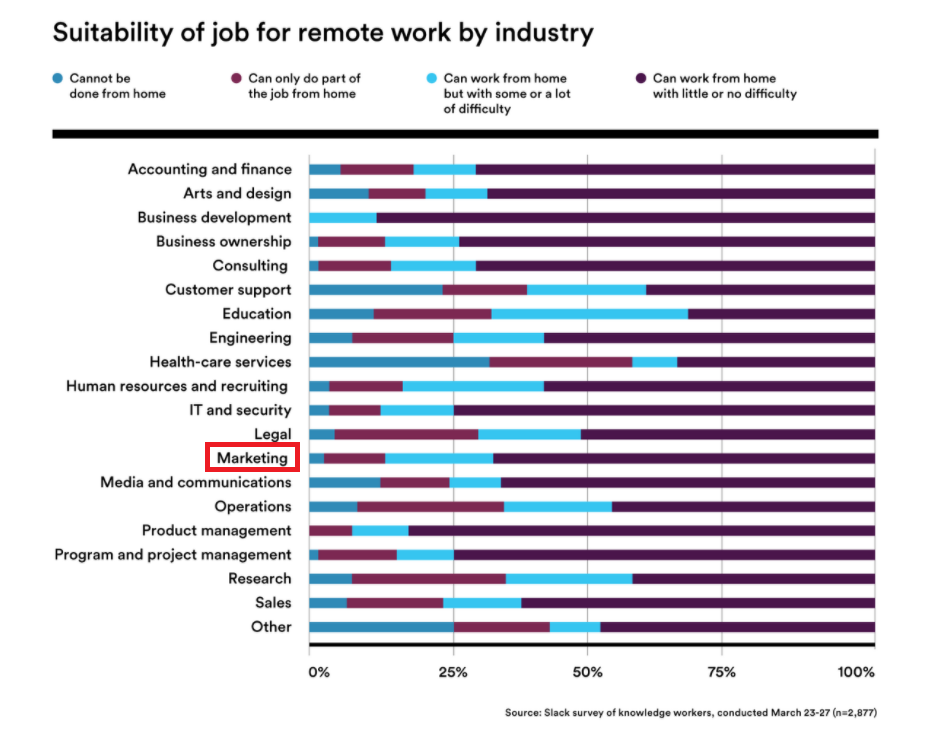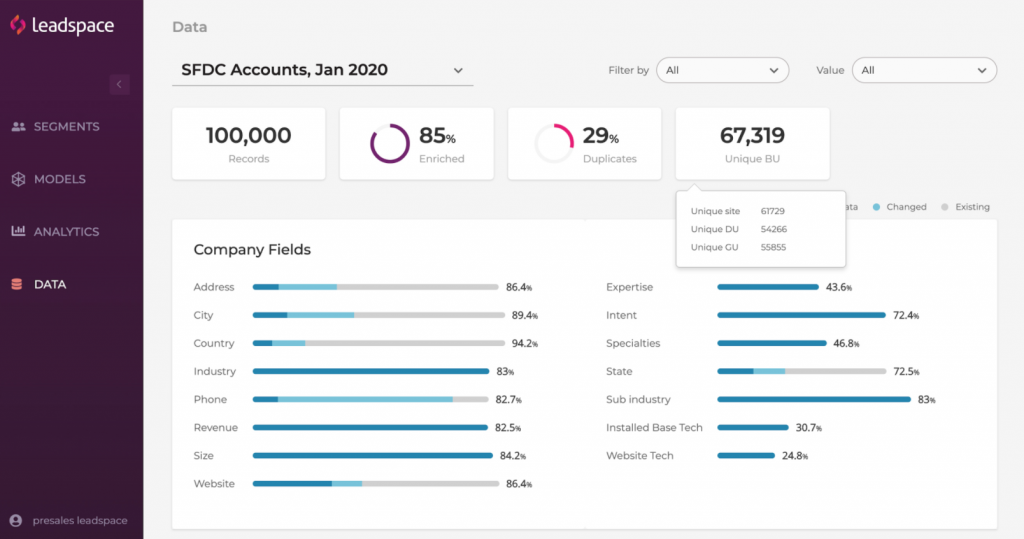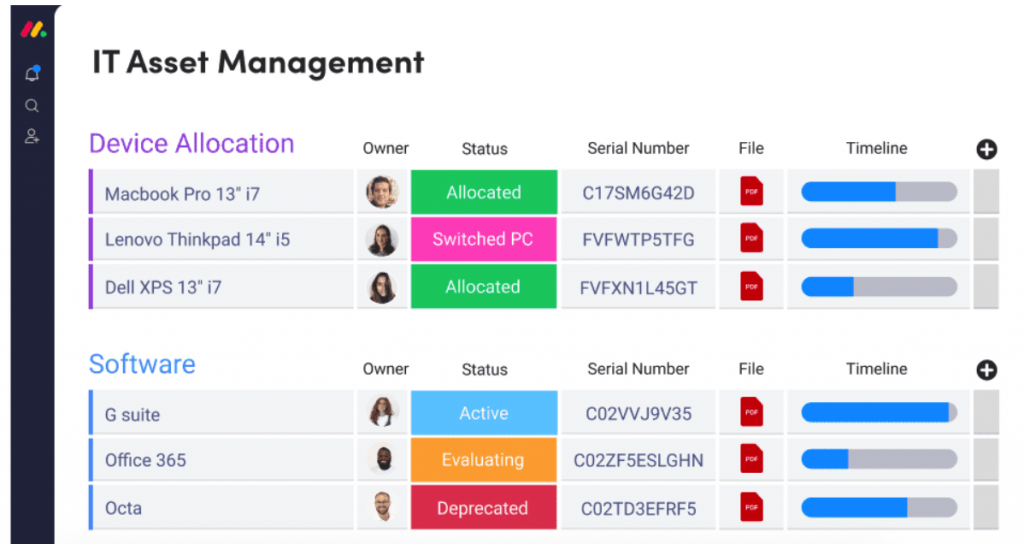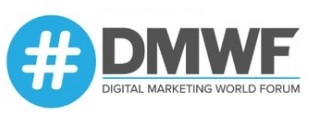
While many companies originally transitioned to remote situations in 2020, it’s looking like many are considering making this a permanent move. In a recent survey from Gartner, 80% of business leaders plan to allow employees to remain at least partially remote indefinitely. For some departments and businesses, letting employees work from home just makes a lot of sense.
Those in the marketing industry have certainly benefitted from working at home. According to research from Slack, marketing was one of the leading industries that thrived with remote-working situations, along with IT, finance, and business development.

However, remote marketers still face a lot of issues with collaboration. Many marketers agree that the leading challenge remote workers faced (beyond at-home distractions) was with collaboration with both co-workers and clients.
Thankfully, there are plenty of martech solutions to help – right?
Well yes, there are plenty – and this creates another challenge of having too many solutions. Flipping between programs can cause technical issues. Plus, it requires additional training and onboarding for those who are less than tech-savvy.
The solution here is to use the martech that makes marketers’ lives easier.
Here are a few categories of martech that are truly essential for collaboration for remote marketing teams.
Marketing orchestration tech

Data integration is undoubtedly crucial for marketing decision-making these days.
However, incorporating this data when working remotely can be tricky for marketing teams, especially when they are importing from different sources. This is where marketing orchestration technology comes in. This is designed to help with the synchronization of both internal and external data to support personalized customer experiences and linear data collection across all departments.
Marketing orchestration platforms allow teams to share resources and design workflows. Some programs, like Leadspace, even integrate with other popular marketing tools, like Salesforce, Hubspot, and Oracle. This helps to make the distribution and analysis of key data points far easier for remote teams.
Further, marketing orchestration helps to unite each department’s goals and strategies. Information can be shared between marketing teams, sales departments, customer service, and the executive suite so everyone is on the same page.
This is useful for keeping employees who are working from home connected and engaged.
Many remote employees often feel a disconnect from their teams and are frustrated when they cannot access the resources they need for decision-making. Marketing orchestration technology can help to unite the company with access to mission-critical data.
Digital asset management
One serious concern with remote teams is data security. Unfortunately, remote working situations are not as secure, leaving databases vulnerable to leaks and hacks. According to a report from Apricorn, 57% of IT leaders worry that remote employees increase the chances of a data leak or hack. Additionally, 47% of respondents had already experienced a data breach due to remote employee’s mistakes or carelessness.
Unfortunately, since many remote workers use their own devices and internet connections, they simply are not as secure as in-office VPNs and databases. One solution here is to use secure digital asset management programs for sensitive data encryption and file sharing.
For instance, tools like Monday combine project management workflows with data security systems. It offers an IT Asset Management portal so you can track who is viewing which files, which devices are being used, and receive alerts for any issues.

If you have worked from home yourself, you know that remote employees run into a lot of technical difficulties with digital assets. From videoconferencing issues to lost files and computer crashes, remote workers often have to figure out these troubles on their own. To avoid situations that put important data at risk, it is recommended to turn to remote IT groups to provide virtual assistance. This will allow employees to instantly connect with IT professionals and set up a secure data asset management system.
Comprehensive collaboration
Collaborating remotely can be even more challenging, especially if team members are in different time zones, involved in numerous projects, or juggling client communications.
Of course, lots of companies have resorted to video conferencing programs like Zoom or Microsoft Teams as the “solution” to remote collaboration.
However, this could be slowing down productivity tremendously. One study even concluded that the time used on unnecessary video calls equates to $1,250 per employee every month! Further, 42% of remote workers said multiple video calls a day interrupted their flow of productivity, and one-third of employees admitted to losing focus in these virtual meetings.
Other digital communication tools can be just as distracting – and frankly, annoying.
Instead of constantly pinging, sending emails, or following up to remind others of deadlines, consider using more comprehensive collaboration programs.
Project management solutions like Wrike provide real-time updates and analytics – and are preferable for remote marketing teams. These systems allow everyone to stay on top of upcoming deadlines and track progress.
Some programs allow you to see which task each team member is working on, along with key metrics like performance reports and time tracking.

It is also recommended to use collaboration systems that allow for communication directly within the program. This helps to keep a record of all questions, concerns, ideas, and comments so members can easily refer to information as needed.
Conclusion
Marketing teams can succeed with remote working situations, so long as they are given a foundation of digital tools to work with. The key is to narrow down solutions by using programs that tackle the greatest challenges that remote teams face: collaboration, communication, and security.
With marketing orchestration tools, digital asset management, and collaboration programs, marketing teams can thrive as they continue to work from home.
Photo by Chris Montgomery on Unsplash

Interested in hearing leading global brands discuss subjects like this in person?
Find out more about Digital Marketing World Forum (#DMWF) Europe, London, North America, and Singapore.






